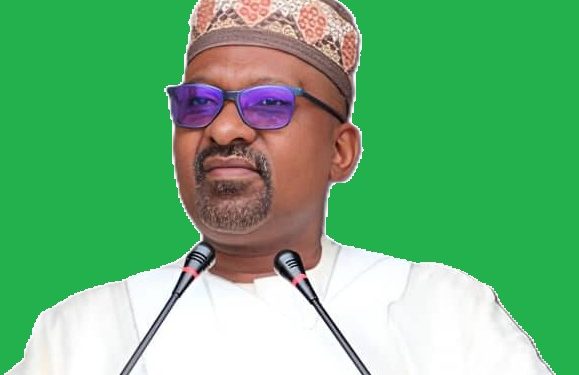By Hassan Osman Kargbo
A groundswell of grassroots support is rapidly building across Sierra Leone in favour of Vice President Dr. Mohamed Juldeh Jalloh’s potential candidacy in the 2028 Presidential election. From the mineral-rich hills of Kono District to the vibrant heart of Freetown, thousands of ruling Sierra Leone People’s Party (SLPP) supporters are mounting what they describe as a “people-powered campaign” to position Dr. Jalloh as the party’s flagbearer, declaring him the “only unifying figure” capable of securing a historic third-term victory.
What began as murmurs within SLPP strongholds has grown into a full-fledged movement, with grassroots mobilizers, youth wings, women’s groups, and traditional leaders championing the Vice President’s bid. Chants of “Juldeh na we only hope!” have become increasingly common at community meetings, radio phone-ins, and social media spaces, signaling a nationwide momentum that party insiders can no longer ignore.
At the center of the campaign is Dr. Juldeh Jalloh’s unwavering loyalty to President Julius Maada Bio and the SLPP’s agenda since taking office in 2018. Supporters point to his consistent presence through political storms and economic challenges, portraying him as a symbol of stability and maturity within the party.
“Dr. Juldeh Jalloh has stood by the President through every storm. He’s earned his stripes – now he must lead!” declared Mariama C. Lebbie, a prominent SLPP Women’s Grassroots Leader from Bo District. “He understands the struggles of ordinary Sierra Leoneans and has never lost touch with the base.”
Many party loyalists argue that the Vice President’s humility, calm demeanor, and commitment to national unity have earned him credibility across Sierra Leone’s often fractious regional and ethnic divides. His leadership style, they contend, stands in sharp contrast to the polarized rhetoric that has characterized much of Sierra Leone’s post-war political landscape.
In addition, Dr. Jalloh, a Fula and Muslim from the northwestern district of Kambia, brings a broad-based appeal that SLPP supporters believe is essential for securing votes beyond the party’s traditional southern and eastern strongholds. His northern roots and technocratic background have helped him build bridges across party lines, according to political observers.
“He speaks to every part of this country,” said Mohamed Sesay, a youth activist in Makeni. “People from the north see themselves in him. He’s a symbol of inclusivity and progress.”
Supporters are banking on that cross-regional pull to counter the opposition’s potential resurgence ahead of the 2028 polls, especially as political tensions continue to simmer in the aftermath of recent electoral disputes and economic hardship.
Several regional campaign teams under the banner “Juldeh 2028 Movement” have already sprung up across the country, with banners, t-shirts, and social media campaigns pushing the message of continuity, peace, and transformation. While the VP himself has yet to publicly declare his intentions, his silence has not deterred supporters.
In Kenema, traders have begun plastering market stalls with posters of the Vice President bearing the slogan “Hope for Salone.” In Port Loko, town hall gatherings have transformed into campaign-style endorsements, with calls for the SLPP leadership to “listen to the people.”
“We’re not waiting for headquarters,” said Fatmata Kamara, an SLPP youth organizer. “This is a grassroots call. The party base has spoken.”
Also, the campaign for Dr. Jalloh’s candidacy also underscores growing anxiety within SLPP ranks about leadership succession. With President Bio constitutionally barred from seeking a third term, the party faces a delicate transition at a time of economic strain and increasing opposition scrutiny.
While other potential contenders have been whispered about in inner party circles, none seem to command the widespread base-level enthusiasm that Dr. Jalloh enjoys. “Juldeh represents continuity without chaos,” said political analyst Ibrahim Koroma. “He’s not seen as a threat to the current SLPP establishment, and that makes him an attractive consensus figure.”
However, Koroma cautioned that internal party dynamics, particularly among the SLPP elite, could shape the final outcome. “The SLPP is known for its deeply strategic conventions. Grassroots momentum is important, but the final decision will hinge on negotiations, alliances, and regional balancing.”
As the 2028 elections inch closer, the SLPP faces the formidable task of managing expectations while preserving party unity. For now, all eyes remain on Dr. Juldeh Jalloh, whose next move could very well define the party’s future trajectory.
Whether he formally joins the race or not, one thing is clear: the people have already cast their first vote — not at the ballot box, but in the streets, markets, and villages of Sierra Leone. And their message is simple: “Juldeh, the time don reach.”













